Best Photography Accessories – Filters
Getting started in photography is a rather involved process. After purchasing a camera, a new photographer will likely reach a point where they are thinking about photography accessories. Filters are one of those accessories.
Filters
One of the first the first photography accessories many consider is a filter. There are many types of filters, and they can be useful in enhancing images, protecting your lens, or as in the case of an ND filter, allow more options for shutter speed in bright light. Low quality cheap lens filters are not a good idea. Lens filters are definitely fall into the cliche of “you get what you pay for.” Low quality filters drastically reduce clarity of the image. Installing a cheap filter on a quality lens will reduce the image quality. Why pay the price for a premium lens and then put a cheap piece of glass in front of it? A filter is the last place to try to save a few dollars.
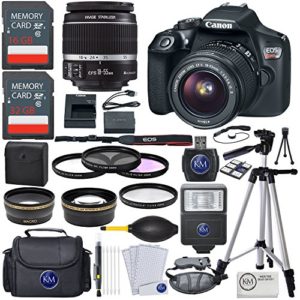
As discussed earlier, the accessories included in the bundled camera kits offered by many retailers are not of good quality will actually hinder the ability to create great images. Good quality filters are available from Hoya, Tiffen, and my personal preference is B&W
Types of Filters
Protective Filters
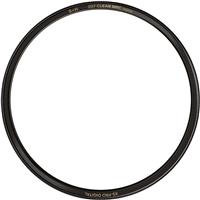
There is a bit of a debate on protective filters. Many photographers like the idea of a filter to protect the fragile glass on their lens, while others feel comfortable with a lens hood to protect the lens. Lens coatings can be harmed by fingerprints, moisture, dust, and the worst case scenario, scratches.
Looking at this closer there are two schools of thought on which type of filter to use for lens protection. Some people will use a clear filter, and others will use a UV filter, also called a haze filter. UV/Haze filters are designed to enhance the image by reducing atmospheric haze, whereas a clear filter is simply that, clear glass to protect the lens. B&W makes a great UV filter for haze control and lens protection.
B + W XS-Pro UV MRC Nano #010M Filter
Circular Polarizer Filter
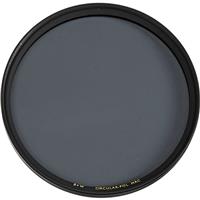
The circular polarizer filter is very popular among landscape photographers and is considered essential by many. The primary advantage of the circular polarizer filter is likely that it will reduce stray ambient glare from shiny or polished surfaces. This is particularly useful when shooting compositions with water or glass. These filters also enhance clouds, or make them “pop,” as well as darken the sky. Color saturation is another advantage.
A consideration in purchasing a circular polarizer is loss of light., referred to as f-stop loss. Some polarizers will cut the light reaching the image sensor significantly. F-stop loss is a major consideration in many compositions. A good quality polarizer that provides a minimum f-stop loss is the
B +W XS-Pro Kaesemann HT Circular Polarizer Filter, MRC Nano Coating
with 1 – 1.5 f-stop loss.
Neutral Density Filters
ND filters are very useful when you want to reduce the light entering the camera so you can have slower shutter speeds in bright light. The most common use for this type of filter is to blur water in compositions such as waterfalls, seascapes, or streams. A slower shutter speed will soften the movement of water or any moving subject, producing a calming effect.
The ND filter can also be used to allow for a wider aperture in bright light. A wider aperture can be used to create a shallower depth of field, blurring backgrounds and isolating the subject as may be desired.
ND filters come in varying degrees from 1 stop to 10 stops. As a photographers filter collection grows, it is not uncommon to have several ND filters in various increments. A 6 stop ND filter would be a good first ND filter, a good quality example of this is the
B + W #106 1.8 (64X) Neutral Density Glass Filter with Multi Coating
Sizing
When purchasing a filter, you will need to know what size to get. When looking at the lens you want to put the filter on, you will see the size. The lens shown below uses a 77mm filter.
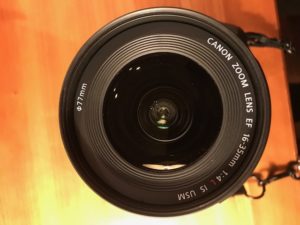
If you have multiple lenses with various filter ring sizes, a step up ring can be used to allow a larger filter to be installed on a lens with a smaller filter ring size. If you choose to do this be certain to buy the filter in the size of the largest filter ring in your lens collection.
Summary
Lens filters provide a means to increase creativity and control of light as a photographer progresses. This article touched on a few popular filters as well as photography accessories that most photographers use. Other filter choices include CC filters which allow control of color levels, and color enhancing or intensifying filters. While most photographers use screw on filters, they are also available in square or rectangular filters. Some of the square type filters can be optically superior but require holders to be attached to the lens, and are very delicate.
The most important consideration of any filter is quality of the glass. The benefit of investing a few dollars more will eliminate much frustration over poor image quality. You get what you pay for.
Next article: What Is A Grey Market Camera?
Previous Article: Best DSLR Cameras For Beginners
List of All Articles

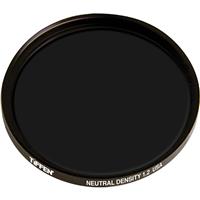
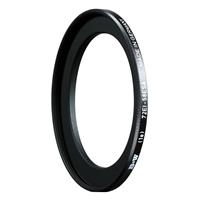
1 response to "Best Photography Accessories – Filters"